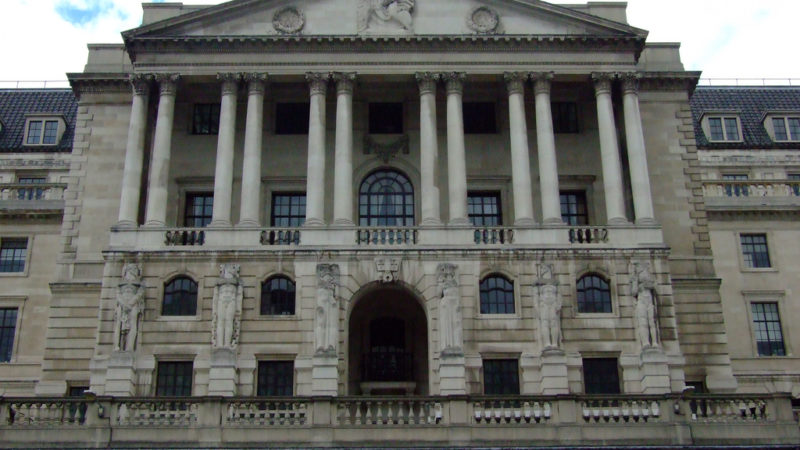
Trade union leaders have criticised Andrew Bailey after the Bank of England governor said in a BBC interview that a “moderation” in pay increases was needed to curb inflation as households struggle with rising energy prices and taxation.
Bailey told BBC Radio 4’s Today programme this morning that “we do need to see restraint in pay bargaining otherwise it will get out of control”. Asked if the bank was implicitly asking workers not to demand big pay rises, he said: “Broadly, yes.”
His comments were condemned by trade union general secretaries as households face the most detrimental blow to their living standards in three decades as spiralling energy prices fuel inflation, outstripping wage growth.
Head of economics at the TUC Kate Bell said inflation was being driven by rising energy costs, not pay demands, and analysis from the trade union federation today highlighted that real wages are set to fall by an average of £50 a month this year.
“Yet again workers are being asked to pay the price, this time for inflation and the energy crisis. Inflation has not been caused by workers. Why should they be expected to pay for the failures of the energy market and the total shambles of government policy?” Sharon Graham asked.
“Why is it that every time there is a crisis, rich men ask ordinary people to pay for it? Enough is enough, we will be demanding that employers who can pay, do pay. Let’s be clear, pay restraint is nothing more than a call for a national pay cut.”
Prices are rising at their fastest pace for 30 years and post-tax incomes are now forecast to fall 2% this year after the rise in cost of living is taken into account, representing the biggest fall in take-home pay since records began in 1990.
“Holding wages down won’t stop the cost of living soaring. Staff struggling to keep the lights on and put food on the table are already leaving the NHS, care and other public services in their droves,” Christina McAnea warned.
The general secretary of UNISON, the public services union, added: “The government must deliver the cash so this year’s wage increases are above the rate of inflation. Otherwise, the consequences will be disastrous for everyone.”
The Bank of England increased interest rates from 0.25% to 0.5% last week in a bid to slow the pace of price rises but forecast that inflation could still reach 7.25% in April. The Institute for Fiscal Studies said that, despite the move, the average earner is still likely to be £400 worse off than last year.
GMB’s Gary Smith described “the nerve” shown by the governor through his comments as “scarcely credible”, saying: “Telling the hardworking people who carried this country through the pandemic they don’t deserve a pay rise is outrageous.”
Paddy Lillis said: “With food and fuel prices rising, energy bills soaring and real wages falling; our members cannot afford the pay restraint called for by the Bank of England governor. Workers should not be asked to pay for a cost of living crisis caused by the government.”
The Usdaw general secretary instead called for the government to take action with a “new deal for workers”, including introducing a minimum wage of at least £10 per hour, better sick pay and an end to insecure employment and zero-hours contracts.
Boris Johnson’s spokesperson said that the Prime Minister is not calling for pay restraint, adding: “We recognise the challenge of the economic picture which Andrew Bailey set out but obviously it’s not up for government to set wages.”
The government announced that the energy price cap will rise to £1,971 in April, an increase of £693 for the average household, Rishi Sunak set out plans to mitigate the impact in a House of Commons statement on Thursday.
The Chancellor outlined a package he said is worth £9bn. The measures include a so-called “discount” on energy bills of £200, to be repaid in £40 instalments via bills over the next five years, a council tax rebate for some households and a discretionary fund for local authorities of nearly £150m.
Labour accused the Chancellor on Thursday of choosing to “shield” oil and gas companies with the government’s “buy now, pay later” scheme for addressing rising household energy bills, the party warned “loads up costs for tomorrow”.
Boris Johnson wrote in The Sun during the Brexit campaign, alongside Michael Gove, that leaving the EU would allow the UK government to scrap the “unfair and damaging” VAT on household energy bills.
But Sunak argued in parliament that a VAT cut would “disproportionately benefit wealthier households” and there is “no guarantee” suppliers would pass on the discount. He also said it would become a permanent government subsidy.




More from LabourList
‘It’s one year since I became Britain’s youngest MP. Here’s what I’ve achieved so far’
Tribute: ‘David Lipsey’s joie de vivre is missing in Labour politics today’
Ellie Reeves: ‘One year in, the next phase begins – focused on living standards’